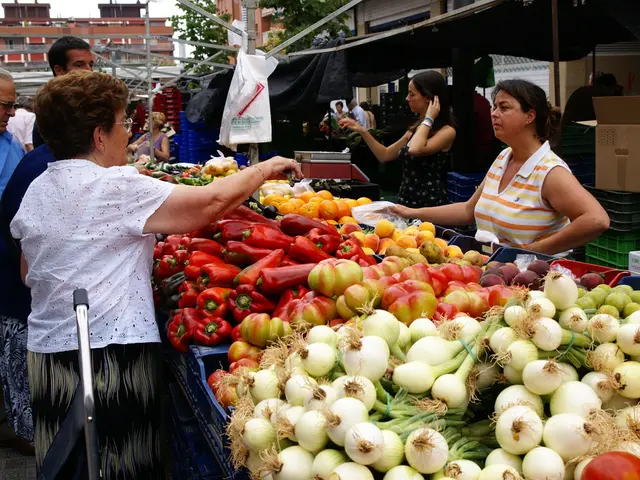Fact verification: Sweden does not practice forced deportation of immigrants due to non-compliance with Western values.
As Sweden grapples with the aftermath of hosting record numbers of asylum seekers in 2015, the government has taken a new approach to migration, focusing on citizenship, integration, and voluntary repatriation.
Citizenship and Deportations
Sweden has tightened its immigration policies, particularly for Somali nationals without citizenship who have criminal convictions or denied asylum claims. The government prioritizes deportation for these groups as part of a broader shift towards stricter immigration control since 2015. However, deportations are based on legal grounds such as criminal convictions or failed asylum claims and not arbitrary cultural criteria.
Integration
The Swedish government places a strong emphasis on integration into Swedish society and the "Swedish way of life." Officials have expressed expectations that migrants who do not integrate or appreciate Swedish norms might consider voluntary return. However, integration challenges remain, with migration organizations criticizing stricter policies for potentially increasing social tensions and discrimination.
Financial Repatriation Incentives
To encourage voluntary return, Sweden has substantially increased the financial incentive offered to migrants willing to leave—from €900 to €32,000 starting from 1st January 2025. This is designed to encourage migrants with legal residence but poor integration prospects to voluntarily repatriate, without resorting to forced deportation based on cultural values.
Additional Labour and Work Permit Rules
Sweden has also implemented more stringent work permit rules, emphasizing high-skilled labor and increasing salary requirements. The Migration Agency is tasked to propose exemptions for certain shortage occupations to maintain labor market needs while sustaining higher standards for permits, reflecting an orderly labor immigration approach.
It's important to note that as of the article's publication date, the Swedish government has not implemented financial repatriation incentives. The government is, however, considering changing its constitution to allow authorities to remove citizenship from dual nationals who obtain their passports fraudulently or commit crimes that are considered a threat to national security.
Prime Minister Ulf Kristersson has proposed increasing financial incentives for migrants to voluntarily leave the country, and has discussed this with a news outlet earlier this year. A vote on the proposal to change the constitution is set to take place in Sweden's parliament next year.
The government's migration policies have sparked criticism from migration organizations, who argue that they increase the risk of discrimination, heighten social tensions, and make integration more difficult for migrants. It's also worth mentioning that claims that Sweden is seeking to deport immigrants who have acquired Swedish citizenship for failing to integrate into Western society are misleading and do not fully align with the Swedish government's position. The government has not made a policy of deporting immigrants who have acquired Swedish citizenship for failing to integrate.
Stockholm has been developing financial repatriation incentives for individuals on a voluntary basis, and has backed a plan to introduce a compulsory course on knowledge of Swedish society and culture in citizenship tests, with the aim of excluding immigrants who are not integrated into Western society from obtaining citizenship.
- Sweden's new migration policy focuses on citizenship, integration, and voluntary repatriation, aiming to discourage asylum seekers without citizenship from staying in the country, particularly those with criminal convictions or denied asylum claims.
- The Swedish government is considering a change in its constitution to allow authorities to remove citizenship from those who obtain it fraudulently or commit crimes threatening national security, while also proposing increased financial incentives for migrants to voluntarily return to their home countries.





